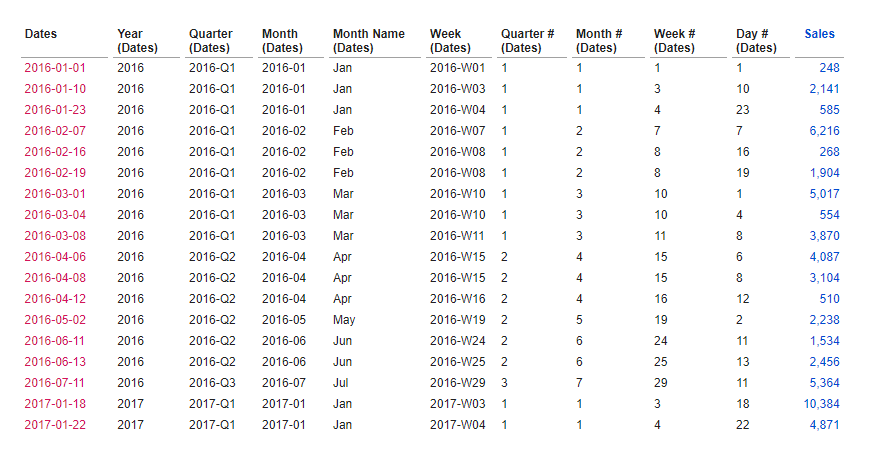 Concat (PQL)
Concat (PQL)
Returns a text string joining two or more values of columns or text into a single text string
- Returned Output: Text
- Library: PQL \ Granular \ String
- Version: 2023.00.000
- Compatibility: Pyramid Query Language (PQL) data sources
Syntax
Concat( <Column String> , <Column String N> )
or
or
Syntax Alternatives
StringJoin( <Column String> , <Column String N> )
or
or
* Click on the function's arguments above for more details on the input values.
Comments
- The columns need to be attributes with date-time values in the model. (The data type needs to be 'date-time')
- The value returned is based on a natural calendar period.
- For details on how to employ and use this function see the custom column overview.
Different Function types
- This function is similar to the PQL semantic and common functions of the same name. However, it operates on a column directly at the grain.
- As a granular function, it is used in the base SQL query itself.
Examples
This example returns a column with the year value of each date-time item in the Order Date column.
Year( [Data].[OrderDate] )
You can see the effect from this example snippet in column #2, based on the original date column in position #1.
